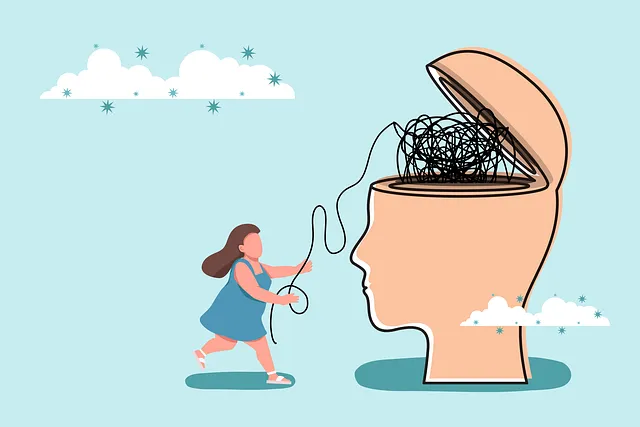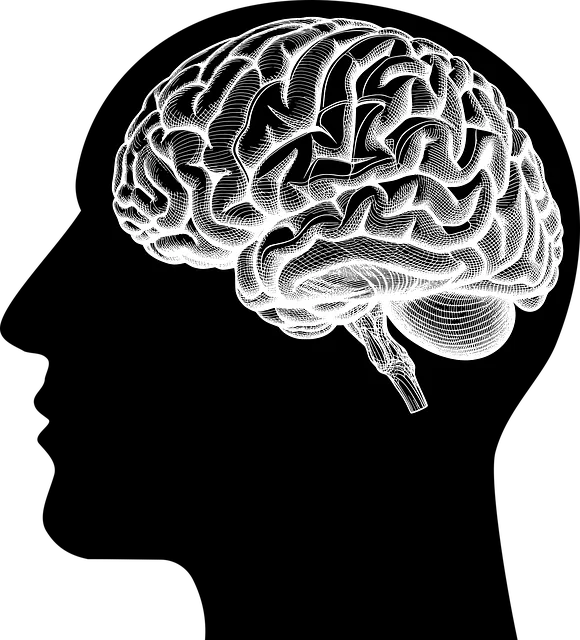Social Skills Training, powered by Kaiser's mental health services in Littleton, CO, is a proven method for managing conditions like anxiety and depression. This program combines Mind Over Matter principles with cultural competency training, empowering individuals to improve communication, build relationships, and confidently navigate social situations. By integrating self-care routines and addressing past traumas, participants gain tools to enhance coping mechanisms and access resources like Kaiser when needed. Through primary care physicians or directly through the network of specialists, Kaiser provides accessible mental health services in Littleton, promoting holistic recovery with a focus on both patients and healthcare provider well-being. Six key steps guide individuals seeking support, from self-reflection and goal setting to learning communication strategies, practicing new skills, and incorporating effective self-care practices. Success stories from communities like Littleton highlight the transformative power of Social Skills Training in conjunction with professional therapy, offering a promising path for those in Littleton looking to access mental health services through Kaiser.
Social skills training is a powerful tool in supporting individuals with mental health conditions, offering a path to enhanced well-being and improved daily functioning. This comprehensive guide explores the intricate link between social skills and mental health, delving into specific challenges faced by those navigating mental health issues.
We’ll highlight Kaiser’s role in providing accessible mental health services in Littleton, offering practical strategies for developing essential social skills, and sharing inspiring real-world success stories. Discover how these steps can transform lives and foster a supportive community.
- Understanding the Connection Between Social Skills and Mental Health
- Identifying Challenges in Social Interactions for Individuals with Mental Health Conditions
- The Role of Kaiser in Providing Access to Mental Health Services
- Strategies for Developing Effective Social Skills: A Step-by-Step Guide
- Real-World Applications: Success Stories of Social Skills Training
Understanding the Connection Between Social Skills and Mental Health

Social skills training is a powerful tool in navigating mental health conditions, as it recognizes the profound connection between our ability to connect with others and our overall well-being. In many cases, individuals struggling with mental health issues may find themselves isolated or experiencing difficulties in social situations, which can exacerbate their symptoms. By understanding and improving social skills, individuals can enhance their support networks, foster meaningful connections, and ultimately promote mental wellness.
Littleton, CO, residents fortunate enough to have access to Kaiser’s mental health services can benefit from specialized programs that incorporate Mind Over Matter principles. These programs aim to empower individuals with the tools needed to engage in effective communication, build healthy relationships, and manage social situations confidently. Developing a robust self-care routine is another aspect of this process, as it enables people to take charge of their mental wellness. Through these strategies, individuals can improve their social skills, leading to better coping mechanisms and an enhanced ability to seek support when needed, whether through Kaiser or other community resources.
Identifying Challenges in Social Interactions for Individuals with Mental Health Conditions

Individuals with mental health conditions often face unique challenges when it comes to social interactions due to symptoms like anxiety, depression, or psychosis. These conditions can make everyday conversations and social gatherings overwhelming, leading to social isolation and further exacerbation of symptoms. For instance, someone experiencing severe anxiety might struggle to initiate or maintain eye contact, which is a fundamental aspect of human connection. Similarly, individuals with schizophrenia may interpret social cues differently, potentially resulting in misunderstandings or feelings of alienation.
Littleton residents interested in accessing mental health services through Kaiser can take advantage of various resources. One effective approach to overcoming these challenges is through Social Skills Training, where individuals learn and practice appropriate communication techniques tailored to their specific condition. Additionally, Healthcare Provider Cultural Competency Training equips professionals with the knowledge to offer more personalized support, ensuring that cultural nuances and diverse experiences are considered. Fostering inner strength through such developments can empower individuals to navigate social situations with increased confidence and resilience.
The Role of Kaiser in Providing Access to Mental Health Services

In Littleton and surrounding areas, Kaiser plays a pivotal role in providing accessible mental health services. With its extensive network of healthcare facilities, Kaiser offers a range of options for individuals seeking support for their mental well-being. For those wondering how to get mental health services through Kaiser, the process typically begins with a primary care physician or through direct access to Kaiser’s mental health specialists. This accessibility is crucial, especially for communities where mental health resources might be scarce.
Kaiser’s commitment to mental healthcare extends beyond traditional therapy and medication management. They prioritize staff training in risk assessment for mental health professionals, ensuring that providers are equipped to handle a variety of conditions. Furthermore, burnout prevention strategies for healthcare providers are integrated into their practice models, recognizing the importance of stress management in maintaining a healthy work-life balance. This holistic approach ensures that patients receive not only effective treatment but also compassionate and resilient caregivers.
Strategies for Developing Effective Social Skills: A Step-by-Step Guide

Developing effective social skills is a crucial aspect of managing mental health conditions, and it can be a transformative tool for individuals seeking support through services like Kaiser in Littleton. Here’s a step-by-step guide to help navigate this process:
1. Identify Areas for Improvement: Begin by reflecting on personal interactions and identifying specific social skill areas that need enhancement. This might include recognizing challenges in initiating conversations, maintaining eye contact, or understanding non-verbal cues. By pinpointing these areas, individuals can set focused goals for their training.
2. Set Realistic Goals: Break down the process into manageable milestones. For instance, a short-term goal could be practicing active listening during daily interactions, while a long-term goal might involve learning to initiate and engage in meaningful conversations with strangers. Setting realistic goals provides a sense of achievement and keeps motivation high.
3. Learn Basic Communication Strategies: Effective communication forms the foundation of social skills. Individuals can benefit from learning active listening techniques, practicing open body language, and mastering small talk. Resources like books or online courses offer valuable insights into these strategies, ensuring individuals feel prepared when engaging with others.
4. Develop a Self-Care Routine for Mental Health: Incorporating self-care practices is essential for managing mental health alongside social skill development. This includes setting aside time for relaxation, engaging in regular physical activity, and adopting healthy sleep habits. A balanced self-care routine enhances overall well-being, making it easier to navigate social situations with resilience.
5. Seek Trauma Support Services: If past traumatic experiences impact social interactions, seeking specialized trauma support services is vital. These services provide tools to process traumatic memories and develop coping strategies, ensuring individuals feel safe and supported while building social skills.
6. Practice in Safe Environments: Start practicing new skills in familiar and comfortable settings before gradually moving to more public spaces. This step-by-step approach allows for building confidence and reduces potential anxiety associated with unfamiliar environments.
Real-World Applications: Success Stories of Social Skills Training

Social Skills Training has proven to be a game-changer in various real-world scenarios, especially when tailored for individuals managing mental health conditions. Many success stories emerge from communities like Littleton, where access to mental health services through healthcare giants like Kaiser is readily available. Participants have reported significant improvements in their ability to interact with others after engaging in structured programs designed to enhance social skills. These initiatives often incorporate practical techniques such as emotional well-being promotion methods and cultural competency training for healthcare providers, ensuring a more inclusive and effective support system.
One innovative approach involves journaling exercises that encourage self-reflection and expression. This mental wellness journaling exercise guidance has shown promise in helping individuals process emotions, track progress, and build resilience. By combining these practices with professional therapy sessions, social skills training becomes a comprehensive tool for holistic recovery and improved quality of life.
Social skills training is a powerful tool in supporting individuals with mental health conditions, offering them the confidence and abilities to navigate social interactions successfully. As highlighted by these strategies and success stories, fostering social competencies can significantly improve overall well-being. For those seeking mental health services in Littleton, understanding the availability of programs like those provided by Kaiser can be a game-changer, enabling access to comprehensive care that addresses both psychological and social needs. By combining professional guidance with practical techniques, individuals can embrace their journey towards enhanced social connections and improved mental health outcomes.






